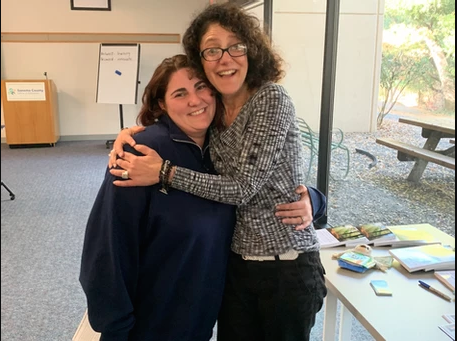Babies Who Fight for Life as Newborns Need More Than Just Love
By Sandi Orlando
All newborns are fragile, but some are more so given their medical issues.
As a nurse in the NICU, I have cared for countless newborns with a range of medical conditions. After 23 years, I observe most newborns placed directly into foster care share a number of diagnoses related to their birth mom’s health. This is not always the case – some are born full term and healthy.
However, I would argue that all newborns discharged into foster care could be initially considered medically fragile, due to the risk factors that led to their placement.
Clearly, there are a number of reasons babies are in the NICU. However, babies whose mothers suffered from:
substance abuse,
poor nutrition,
chronic infections,
smoking,
alcohol,
or the like often require NICU treatment. Most don’t require prolonged NICU stays — but others do, particularly those who are born very premature or require prolonged resuscitation, antibiotics, or corrective surgery.
Drug exposed and preterm babies are especially prone to fussiness and irregular muscle tone due to the effect of drugs on the developing brain. They might be stiff, rigid and jittery (signs of high muscle tone) or sleepy, floppy and lethargic (low muscle tone). If their birth was traumatic and oxygen to their brain was compromised, they might have interrupted breathing patterns (apnea) or seizures. Many babies born early or with respiratory complications show signs of feeding intolerance; they may spit up frequently or take so long to nipple that consistent weight gain is insufficient. Normal growth and development is often delayed, and they may require multiple medical appointments with specialists and high risk infant clinic follow-up to monitor their progress and provide early intervention services.
Babies who fight for life as newborns may have medical challenges that require ongoing assessment and treatment by multidisciplinary teams of specialists. Each baby’s case presents different challenges for their caregivers, and the outcomes aren’t always clear. Some babies thrive and develop normally and others face lifelong complications.
Foster parents can provide better care and enhance outcomes for special needs babies by educating themselves about specific disorders and actively engaging with medical providers and therapists.
For instance, babies showing muscle tone abnormality are often referred for physical therapy. Typically, those appointments are once or twice a month. Babies will not benefit from physical therapy unless their caregivers consistently work with them on the exercises or positioning strategies that the therapist demonstrates.
Before accepting a newborn placement, it is helpful to get as much information as possible about the circumstances. There is a great difference range in condition between equally aged babies. For example, if a four month old is now ready to be discharged, what was the reasoning to have been hospitalized? Was the child born four months early? If that is the case, despite being four months of age, he or she is actually just now at full term. The condition of that baby would be very different from that of a four month old who had been born full term and was in the NICU for a severe infection, or surgery to correct a birth defect, or birth complications resulting in brain damage that may significantly impair him for life.
It’s reasonable to ask questions and perhaps even defer your answer until you have had some time to research and understand the baby’s condition.
When babies are in the hospital for weeks or months, parents typically are receiving ongoing instruction on how to best care for their babies. However, foster parents don’t have this advantage. Attending one or two hospital visits prior to discharge gives foster parents an opportunity to ask questions and learn about the intricacies of care. Even if they are guarded with maternal information, medical professionals can explain what you need to safely and effectively care for the baby after discharge. The more complicated medical diagnosis or prolonged NICU stay, the more critical it is for foster parents to have more time to absorb the medical training needed to care for baby post discharge. Sadly, this often happens in one marathon session, which is overwhelming. Just a few visits before going home can make the transition easier for everyone.
Caring for medically fragile babies requires careful consideration of not only the needs of the baby, but also the needs of all the family members. Often it is best for everyone if the foster family is plugged into support organizations, like Help One Child, so they can gain critical understanding of the unique needs of foster and adoptive children.
Caring for any newborn is a bit unpredictable and sometimes an overwhelming challenge, but always worthwhile and rewarding.
Sandi Orlando has been a foster Mother since 1999 to medically fragile infants, a natural calling for her as an RN in the NICU at Valley Medical Center in San Jose for 23 years. Her nursing experience prompted them to take medically fragile newborns and infant placements. She also taught classes for Santa Clara County foster parents on newborn assessment and caring for medically fragile babies, with a special emphasis on developmentally supportive care. She has been part of the Help One Child Network for many years as a Board Member and currently sits on the Education committee.









